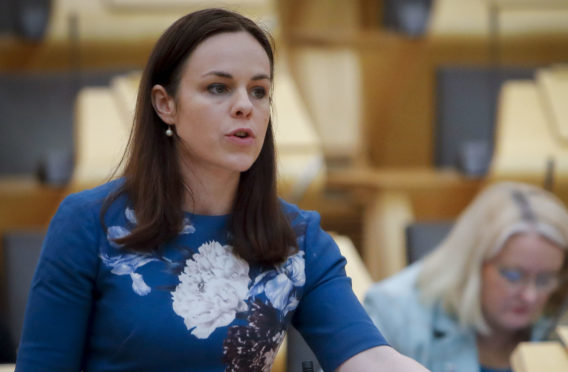
Most of the holding to account in our society is conducted through the media and, particularly in Scotland, that largely means the written word. Without a healthy press, the arrogance of power will assert itself at all levels.
That is why the Scottish Government’s response to a request from Scotland’s press industry for a helping hand in current dire circumstances is so disappointing. A bland pro forma letter from the Finance Secretary scarcely meets the challenge of the hour.
The current crisis demonstrates exactly why the Scottish press matters. Opposition politicians are circumspect because they fear offending public opinion if too strident in their views. Our broadcasters are over-housetrained and ask too few challenging questions. So, it is largely through newspapers that whistles are blown, scandals uncovered and policies challenged.
Journalists may be restricted to one question to the First Minister at her daily press conferences during the Covid-19 crisis but they can still dig, find other sources, and demand answers to create tomorrow’s headlines.
That is how the big stories about Scotland’s response to the crisis have emerged – the appalling treatment of care homes, the abysmal level of testing, the bizarre behaviour of the Chief Medical Officer, now departed. All these and many more stories were brought centre stage by the Scottish press.
At present, our newspapers are in a precarious position. It is hardly a state secret that sales have been in decline though online circulations continue to rise, confirming that there is still a market for real journalism. It is a undoubtedly a challenging environment made a whole lot worse by the current crisis. If shops are closed, papers cannot be sold. If pubs and cafes have shutters up, they do not need to advertise. The cycle is relentless and newspaper publishers are facing some critical choices.
Staff levels have dropped but there is a limit to how few people a newspaper can employ and still turn out a product that meets readers’ expectations. This is a challenge at national, regional and local levels, each of which has its own, particular, needs for a healthy, inquiring press.
In response to these challenges, the Scottish Newspaper Society wrote to Kate Forbes, the Finance Secretary, asking for her support in a few specific ways. The most obvious is to use newspapers for an enhanced advertising campaign to keep the public informed during this crisis.
This could be done largely cost-free by transferring spending from social media to the printed press. A rates holiday for newspapers would also help while Denmark has created a £25-million fund to help small newspaper publishers through the crisis.
The UK Government has responded positively to the call for a press advertising campaign but the Scottish Government has declined to follow. The fact that Ms Forbes’ response took the form of a generic letter which might as easily have gone to any other trade body was particularly disappointing.
Newspapers remain a vital part of Scottish society and they currently need a bit of help which they repay amply by the service they provide.
They are not perfect but, without them, we would be left with the unregulated outpourings of social media to the delight of those who would fill the vacuum with falsehoods and propaganda.
As so often, the last word is best left to Robert Burns and Ms Forbes should pay particular attention:
“Here’s freedom to him that wad read,
Here’s freedom to him that wad write!
There’s nane ever feared that the Truth should be heard,
But they who the Truth wad indite.”

Enjoy the convenience of having The Sunday Post delivered as a digital ePaper straight to your smartphone, tablet or computer.
Subscribe for only £5.49 a month and enjoy all the benefits of the printed paper as a digital replica.
Subscribe